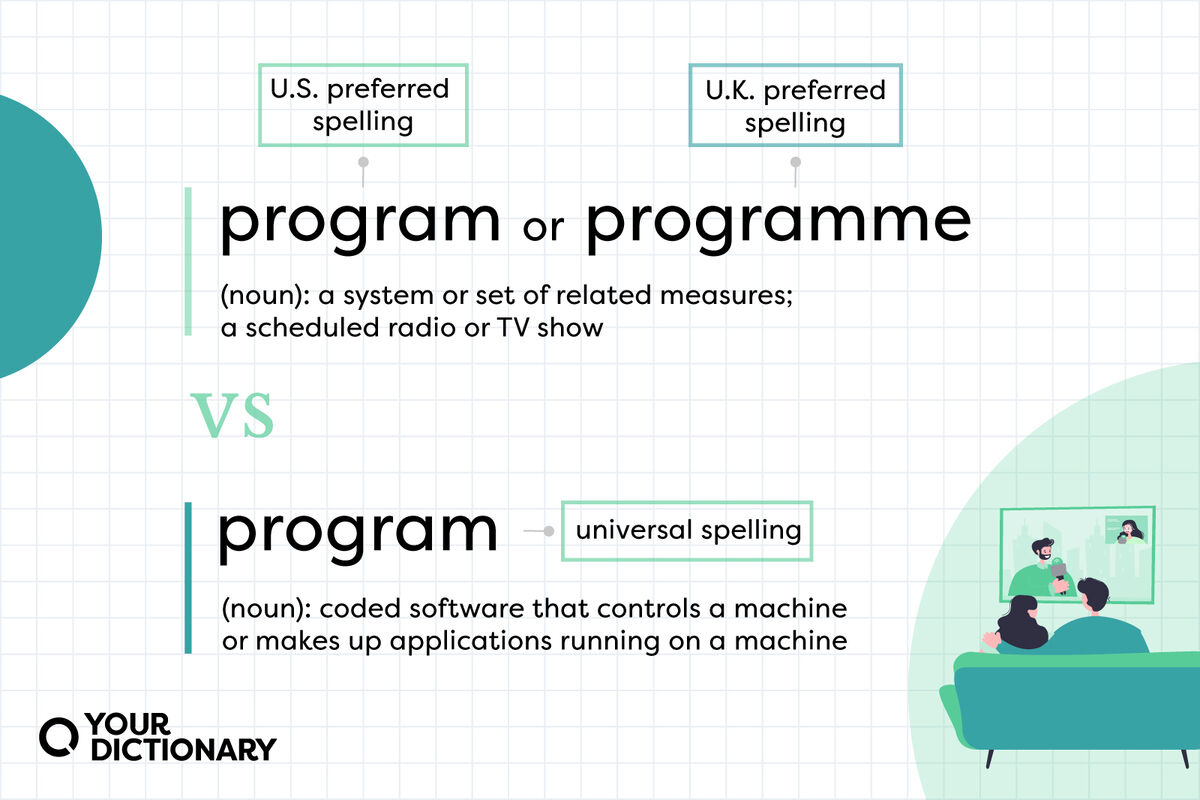
If you’re not yet, you better get with the program! Or is it programme? Technically, both program and programme are correct, but what you actually use depends on where you live. Why do you have to get with the program, though? Well, that’s just something you’ll have to figure out yourself, sorry.
Which Is Correct: “Programme” or “Program”?
Both programme and program are correct. They are slightly different spellings that generally mean the same thing. However, you’re extremely unlikely to see programme in places that use American English, which favors program. On the other hand, British English users love programme.
But that’s not a set rule. Even in countries that use British English, including Canada and Australia, program is still the preferred form. Furthermore, depending on the context, even those in the U.K. may use program instead of programme.
When To Use “Programme” and “Program”
If you’re a British English user in the U.K., you’re likely using programme in most instances. The one exception is when it involves computers. When referring to apps and other computer-based systems, most people in the U.K. revert to the American English program.
If you use American English, you’ll use program in all instances.
What Do “Programme” and “Program” Mean?
Program and programme have multiple meanings.
- Programme and program were originally used in the 1600s to refer to a general written public notice.
- By the 1800s, that meaning shifted to a written list of pieces during a concert or play, which we now know better as a playbill.
- With the advent of newer media, that eventually extended to general schedules for radio and TV (giving you radio and TV programmes or programs).
- Today, in general, program and programme are nouns that refer to a system or set of related measures.
“Program” and “Programme” in Computing
And then computers became more prominent. Even in British English, you’ll probably only see program when referring to coded software that controls a machine or makes up applications running on a machine.
- The program wasn’t running properly, so I had to restart my computer.
- Once you run the program, getting started is pretty straightforward.
Verb Forms of “Programme” and “Program”
Programme and program also come in verb forms that refer to designing a system or schedule or writing the code to a computer program.
- You can fairly easily program your computer to play cool music when you turn it on.
- I programmed myself to wake up at 6:30 every morning.
Plural of “Programme” and “Program"
If you want to form a plural of programme or program, simply add an “S” to the end of the word. This gives you programmes and programs, both pronounced and used the same.
Other Forms of “Programme” and “Program”
Things can get a little funky when you look at the other forms of programme and program that add a suffix to the end of the word.
When programme is in its -ed or -ing form, you drop the “e” and add the suffix, programmed and programming.
When changing program into its -ed or -ing form, you have to double that “m” before adding the suffix, giving you programmed and programming. However, the alternate versions that don’t double that “m” (programed and programing) are acceptable. Most people prefer the double “m” use, especially when you consider words like framing and taming that look like they should rhyme but do not.